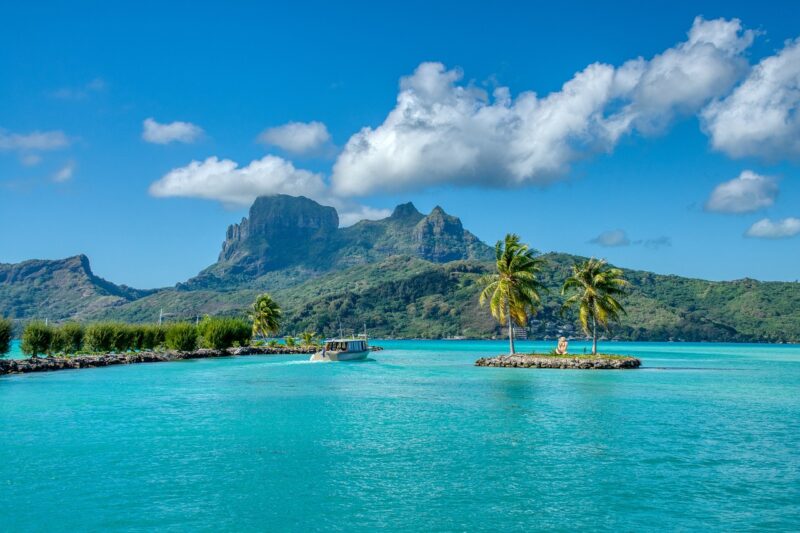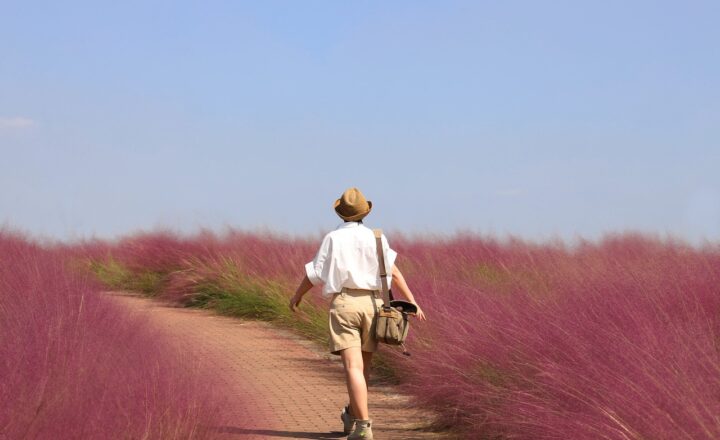Why Small Islands Are Perfect for Eco-Tourists Who Want to Protect the Planet
November 17, 2024

As the world grapples with the impacts of climate change and environmental degradation, the rise of eco-tourism has emerged as a beacon of hope for preserving our planet’s natural beauty. Among the most captivating destinations for eco-conscious travelers are small islands, where unspoiled landscapes and rich biodiversity offer unique opportunities for sustainable exploration. In this article, we’ll delve into why small islands are the ideal playground for eco-tourists looking to make a positive impact while enjoying the wonders of nature.
1. The Allure of Small Islands
There is something inherently enchanting about small islands. With their pristine beaches, crystal-clear waters, and lush vegetation, these secluded paradises attract visitors from around the world. But what truly sets them apart is their ability to offer eco-tourists the chance to engage deeply with nature, away from the hustle and bustle of crowded tourist hotspots.
Natural Diversity
The geographical isolation of many small islands has led to the development of unique ecosystems that are rich in biodiversity. From the coral reefs of the Caribbean to the rainforests of the Pacific Isles, these environments support countless species that are found nowhere else. Eco-tourists visiting small islands can partake in activities like snorkeling, hiking, and wildlife observation, all while learning about conservation efforts aimed at protecting these fragile ecosystems.
2. Environmental Responsibility: A Call to Action
As eco-tourism gains traction, there is a growing emphasis on making responsible travel choices that prioritize sustainability. Small islands often have limited resources and infrastructure, making the impact of tourism critically important. By supporting eco-friendly practices and choosing to stay in accommodations that prioritize sustainability, tourists can help protect these delicate environments while contributing to the local economy.
Sustainable Accommodations
Visitors to small islands should seek out eco-lodges and resorts that utilize renewable energy sources, implement waste reduction practices, and engage in local conservation projects. From solar-powered cabins to eco-friendly villas designed with sustainable materials, these accommodations allow travelers to maintain their commitment to the planet while enjoying the comforts of home.
3. Cultural Immersion and Community Engagement
Another compelling reason to choose small islands for eco-tourism is the opportunity for cultural immersion. Many island communities are deeply connected to their natural environments and possess invaluable knowledge about sustainable practices and local ecosystems. Tourists can engage respectfully with locals, participate in traditional activities, and gain insights into how these communities maintain their cultural heritage while promoting environmental stewardship.
Conservation Programs
Many small islands have established conservation programs that actively involve tourists. By getting involved in these initiatives—such as beach clean-ups, wildlife tracking, and habitat restoration—travelers can contribute hands-on to the preservation of these delicate ecosystems. These experiences not only enrich the traveler’s journey but also foster a sense of responsibility towards the environment.
4. Eco-Activities That Leave a Minimal Footprint
Small islands offer a plethora of eco-friendly activities that allow travelers to explore the natural beauty without leaving a harmful imprint. Consider these environmentally conscious options:
Kayaking and Canoeing
Exploring mangroves, lagoons, and coastlines by kayak is an excellent way to appreciate local wildlife and scenery while minimizing disturbance to the environment. This silent form of travel allows eco-tourists to navigate tranquil waters and observe birds, marine life, and unique plant species up close.
Guided Nature Walks
Many islands provide opportunities for guided nature walks led by knowledgeable local guides. These excursions often include educational components about the flora and fauna, emphasizing the importance of conservation and ecological balance.
Snorkeling and Diving
With access to vibrant coral reefs, snorkeling and diving tours allow travelers to witness the underwater ecosystems that thrive beneath the waves. Participating in guided tours organized by local conservation groups can further ensure that snorkeling minimizes environmental impact.
5. A Call to Protect Ocean Health
The health of small islands is closely tied to the health of the oceans. Increasingly, eco-tourists are understanding that their travel choices can impact marine environments. Many small islands face significant challenges related to climate change, pollution, and overfishing. Eco-tourists can raise awareness and advocate for policies that protect marine life and habitats.
Participating in Marine Conservation
Travelers can get involved with marine conservation programs that monitor reef health or help in plastic pollution clean-up efforts, ensuring that actions taken today benefit future generations. By aligning their travel habits with conservation goals, eco-tourists become ambassadors for the environments they cherish.
Conclusion: The Future of Eco-Tourism on Small Islands
As eco-tourism continues to grow, small islands remain at the forefront of responsible travel. Their unique ecosystems, commitment to sustainability, and cultural richness make them perfect destinations for eco-tourists passionate about protecting the planet. When travelers approach these environments with respect and awareness, they can leave a positive legacy, ensuring that these paradises endure for generations to come.
Whether you seek adventure, relaxation, or a chance to connect with nature, small islands offer the ultimate eco-tourism experience. Let your travels be a testament to the power of sustainable exploration—one small island at a time.






